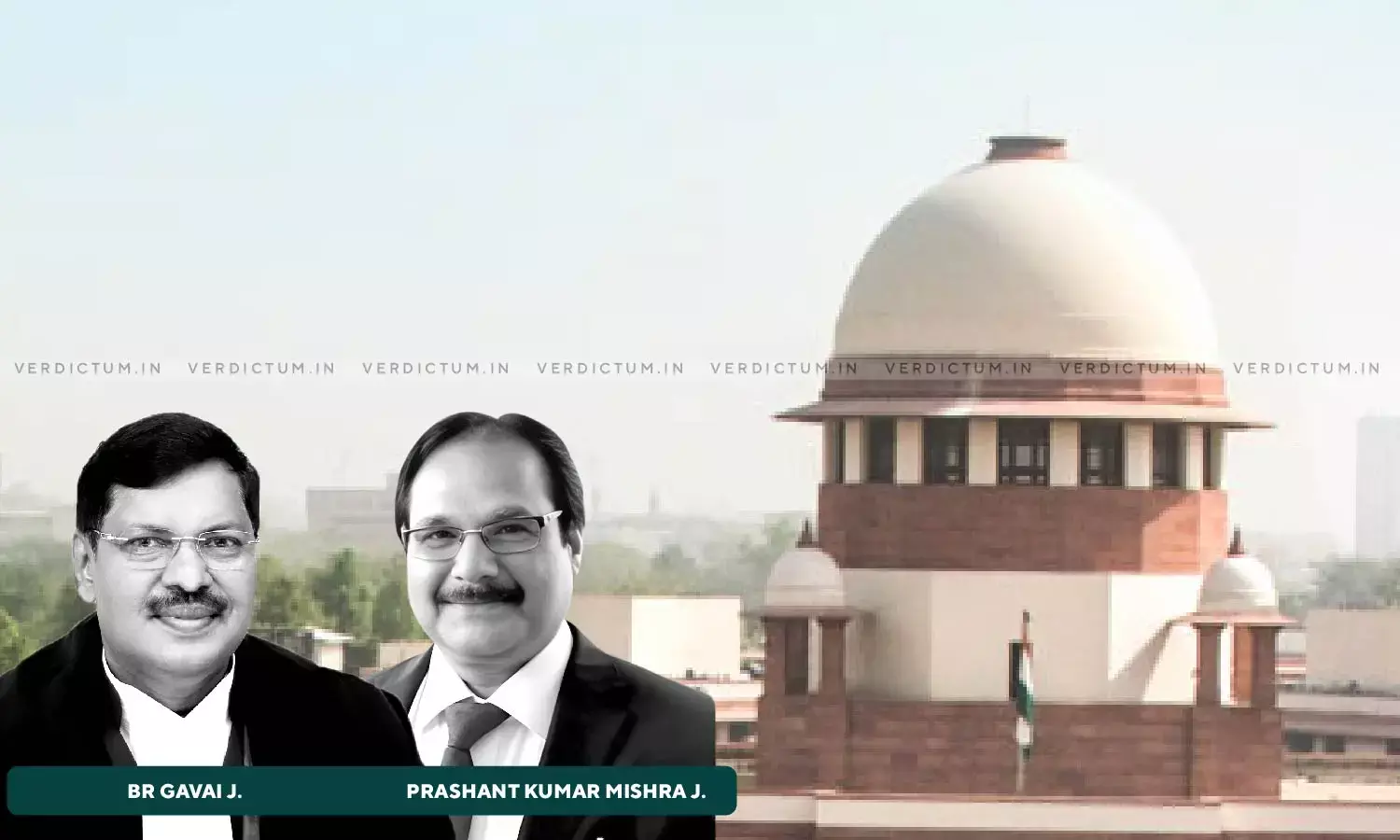Electricity Act | State Commission Can Consider Whether Bids Quoted Are Aligned With Prevailing Market Prices Or Not: Supreme Court

The Supreme Court has observed that the Electricity Act gives power to the State Commission to regulate the electricity purchase and procurement process.
The Court said that the State Commission can go into the question whether the bids quoted by the bidders are aligned with the prevailing market prices or not.
In that context, the Bench of Justice BR Gavai and Justice Prashant Kumar Mishra observed that, "Section 86(1)(b) of the Electricity Act gives ample power on the State Commission to regulate electricity purchase and procurement process of distribution licensees. It also empowers the State Commission to regulate the matters including the price at which electricity shall be procured from the generating companies, etc."
It was further noted that, "When the Bidding Guidelines itself permit the BEC to reject all price bids if the rates quoted are not aligned to the prevailing market prices, there is no question of the State Commission being not in a position to go into the question, as to whether the rates quoted are market aligned or not, specifically, in the light of ample powers vested with the State Commission under Section 86(1)(b) of the Electricity Act, which also includes the power to regulate the prices at which electricity shall be procured from the generating companies, etc."
Senior Counsel P Chidambaram appeared for the appellants, while Senior Counsel AM Singhvi and Senior Counsel CS Vaidyanathan appeared for the respondents.
The Rajasthan Rajya Vidyut Prasaran Nigam Limited (RVPN) filed a petition before the Rajasthan Electricity Regulatory Commission seeking approval for procuring 1000 MW of power through competitive bidding. After qualifying bidders participated and financial bids were submitted, RVPN, following a preliminary evaluation, decided to negotiate with qualified bidders to potentially reduce tariffs.
Power Purchase Agreements (PPAs) were subsequently signed with the lowest bidders (L-1, L-2, and L-3) for the 1000 MW quantum. However, the Government of Rajasthan approved the purchase of only 500 MW, leading the State Commission to approve the reduced quantum, citing recommendations from the Expert Appraisal Committee (EAC).
Dissatisfied with the reduction, L-2 and L-3 bidders appealed to the Appellate Tribunal for Electricity (APTEL), which ruled in their favor, deeming the reduction from 1000 MW to 500 MW incorrect. The Supreme Court, upon appeal, upheld the decision, emphasizing that the originally offered quantum in the bidding process should be considered.
During the proceedings, L-4 and L-5 bidders faced scrutiny from the State Commission regarding tariff alignment with market prices. L-5 bidder challenged the Commission's order at APTEL, which held that the State Commission had to adopt the tariffs without assessing alignment with market prices.
Challenging the APTEL order, the appellants approached the Supreme Court. In an interim order, the Court allowed L-5 bidder to supply power at Rs.2.88 per unit. Subsequently, the respondent no.1 filed a writ petition before the High Court seeking a Letter of Intent and a power purchase agreement. The High Court granted the petition, leading to the appellants filing the current civil appeal before the Supreme Court, disputing the decision to issue a Letter of Intent and sign a power purchase agreement with the respondent no.1.
The Supreme Court observed that the State Commission was justified in considering clause 5.15 of the Bidding Guidelines, which specifically permit to reject all price bids if the rates quoted are not aligned to the prevailing market prices.
In that context, it was held that the APTEL had, "grossly erred in holding that the State Commission has no power to go into the question, as to whether the prices quoted are market aligned or not and also not to take into consideration the aspect of consumers’ interest."
It was further observed that the High Court could not have issued a mandamus to the instrumentalities of the State to enter into a contract, which was totally harmful to the public interest. In that context, it was said that, "if the power/electricity is to be procured by the procurers at the rates quoted by the respondent No.1-MB Power, which is even higher than the rates quoted by the SKS Power (L-5 bidder), then the State would have been required to bear financial burden in thousands of crore rupees, which would have, in turn, passed on to the consumers. As such, we are of the considered view that the mandamus issued by the Court is issued by failing to take into consideration the larger consumers’ interest and the consequential public interest."
Subsequently, the appeals were allowed.
Appearances:
Appellants: Senior Counsel P Chidambaram
Respondents: Senior Counsels Dr AM Singhvi and CS Vaidyanathan
Cause Title: Jaipur Vidyut Vitran Nigam Ltd. & Ors. vs MB Power (Madhya Pradesh) Ltd. & Ors.
Click here to read/download the Judgment

